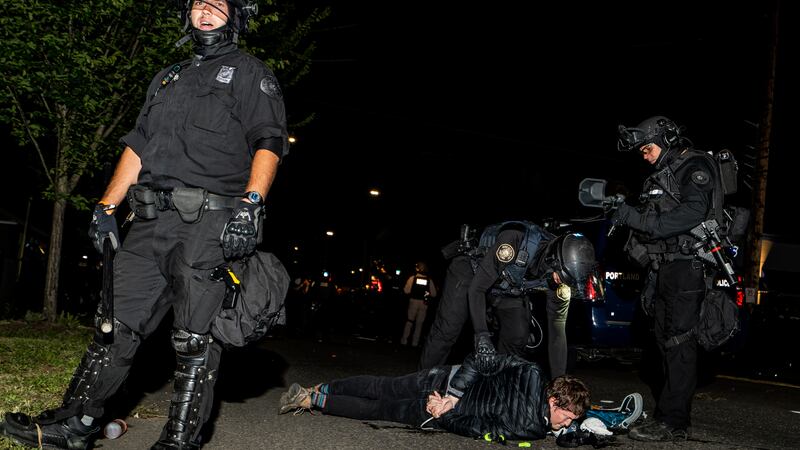What would actually be required to abolish the Portland Police Bureau? —Louis F.
Frankly, a miracle. But before you run out to hustle up some goats, frankincense and kale for a burnt offering to the deity of your choice, let's define our terms.
There are probably some activists for whom the slogan "abolish the police" really does mean dispensing with law enforcement (and laws) altogether. However, most seem to propose something more like "replace the police."
In such a scenario, the leaders of a given city acknowledge that the never-ending cavalcade of reform initiatives has failed (the Minneapolis force, for example, was "reformed" five years before George Floyd's murder). They dismantle the current department, fire everybody, and start from scratch.
Importantly for frightened white people, there would still be someone to call in the unlikely event that a serial killer really was chasing you with a knife.
Importantly for everyone else, the entity that signed that city's police-union contract (which often makes it near-impossible to hold rogue officers accountable) would no longer exist, leaving the newly created police force free to negotiate a more favorable agreement with its employees.
Is this legal? In the one U.S. city where it was tried, Camden, N.J., the state Supreme Court unanimously ruled it wasn't—but it took four years for the case to wind through the courts. By the time the decision was handed down, the new county police force was already well established.
Camden's experience has been held up as a model for the nation, as photos of its police chief marching in solidarity with Black Lives Matter protesters go viral. Could Portland follow its lead?
Maybe? I'm not a scholar of Oregon labor law. I do know the Camden experiment required a near-perfect storm of favorable circumstances: A state law was already on the books allowing cities to opt into county policing, the local Democratic establishment hated its police force so much it was (uncharacteristically) willing to take on a public employee union, and the Republican governor, Chris Christie, hated public employee unions so much he was (also uncharacteristically) willing to take on cops.
Of course, activists in Camden didn't have the momentum of a national groundswell behind them. Still, I'm not holding my breath—or, rather, I am, but only because I can't stand the smell of burning kale.
